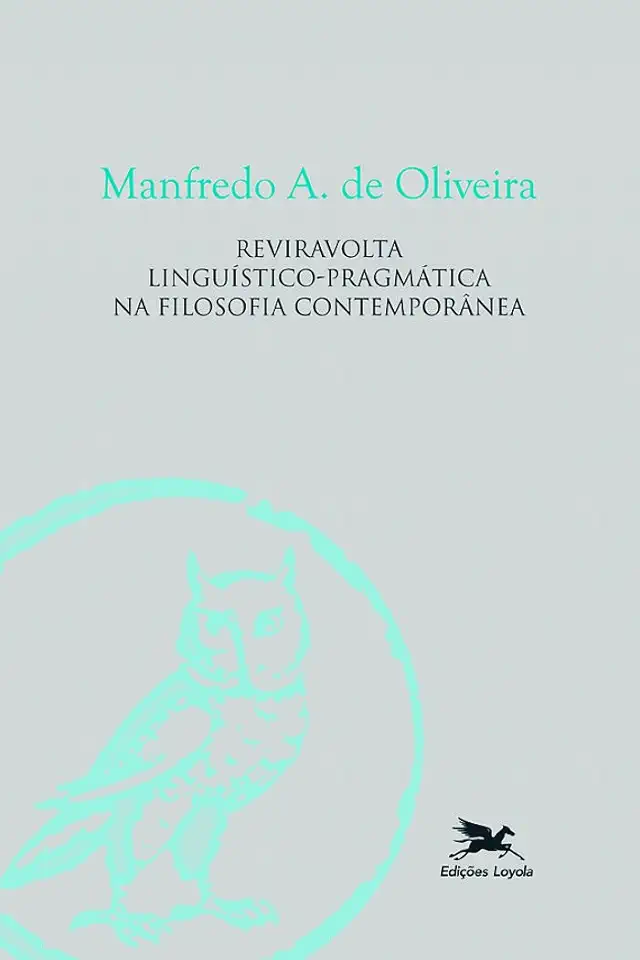
Linguistic-Pragmatic Turn in Contemporary Philosophy - Manfredo Araújo de Oliveira
Linguistic-Pragmatic Turn in Contemporary Philosophy: A Groundbreaking Exploration of Language and Meaning
In the realm of contemporary philosophy, the linguistic-pragmatic turn marks a pivotal shift in our understanding of language and its profound impact on human thought and communication. This intellectual movement, pioneered by renowned philosophers such as Ludwig Wittgenstein, J.L. Austin, and John Searle, has revolutionized the way we perceive the relationship between language, meaning, and human action.
Unveiling the Power of Language
At the heart of the linguistic-pragmatic turn lies the recognition that language is not merely a tool for conveying information or expressing thoughts. Rather, it is a dynamic and multifaceted phenomenon that shapes our perception of reality, influences our actions, and plays a crucial role in our social interactions.
This book, authored by the esteemed philosopher Manfredo Araújo de Oliveira, delves into the intricacies of the linguistic-pragmatic turn, providing a comprehensive exploration of its key concepts, influential thinkers, and far-reaching implications. With meticulous scholarship and engaging prose, Oliveira invites readers to embark on an intellectual journey that challenges conventional notions of language and meaning.
Key Themes and Insights
Throughout the book, Oliveira masterfully elucidates the fundamental themes that underpin the linguistic-pragmatic turn, including:
The Performative Nature of Language: Language is not simply a descriptive tool, but also a performative act that can bring about changes in the world. This concept, pioneered by J.L. Austin, challenges traditional views of language as a mere conveyor of information.
Speech Acts and Illocutionary Force: Speech acts, such as promising, requesting, or apologizing, are not merely statements, but rather actions that have specific effects on the world. This notion, introduced by John Searle, highlights the dynamic and transformative power of language.
Contextual Meaning and Pragmatics: Meaning is not inherent in words or sentences, but rather emerges from the context in which they are used. This pragmatic approach to meaning emphasizes the role of speaker intention, shared knowledge, and social conventions in shaping our understanding of language.
Influential Thinkers and Their Contributions
Oliveira meticulously examines the contributions of key philosophers who have shaped the linguistic-pragmatic turn, including:
Ludwig Wittgenstein: Wittgenstein's groundbreaking work, particularly his later writings on language games, challenged traditional notions of meaning and highlighted the importance of context and social practices in understanding language.
J.L. Austin: Austin's theory of speech acts revolutionized the study of language by demonstrating that words can not only describe the world, but also perform actions and have real-world effects.
John Searle: Searle's work on speech acts and intentionality further developed the performative theory of language, emphasizing the role of speaker intention and the social context in shaping the meaning of utterances.
Implications for Philosophy and Beyond
The linguistic-pragmatic turn has had a profound impact on various fields of philosophy, including ethics, epistemology, and metaphysics. Oliveira explores these connections, demonstrating how the insights gained from the linguistic-pragmatic turn have challenged traditional philosophical assumptions and opened up new avenues for inquiry.
Moreover, the implications of the linguistic-pragmatic turn extend beyond the realm of philosophy, influencing disciplines such as linguistics, psychology, sociology, and communication studies. Oliveira provides a comprehensive overview of these interdisciplinary connections, showcasing the transformative power of the linguistic-pragmatic turn in shaping our understanding of human communication and social interaction.
A Must-Read for Intellectual Explorers
"Linguistic-Pragmatic Turn in Contemporary Philosophy" is an essential read for philosophers, linguists, and anyone interested in the profound relationship between language, meaning, and human experience. With its rigorous scholarship, engaging writing style, and thought-provoking insights, this book promises to challenge your assumptions about language and open up new horizons of intellectual exploration.
Embrace the Linguistic-Pragmatic Turn and Transform Your Understanding of Language and Meaning. Get Your Copy Today!